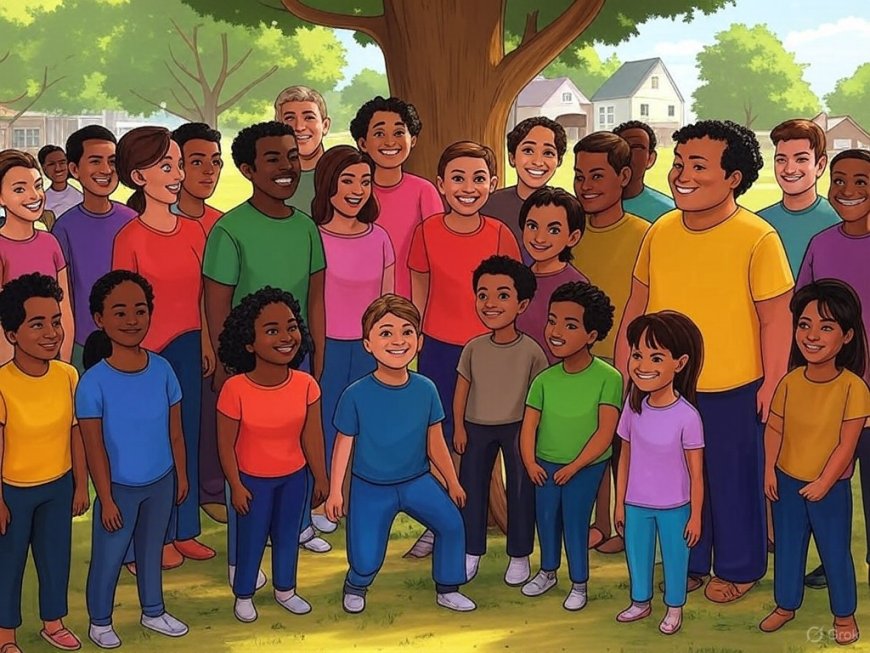The Power of Belonging: Why Finding Your Tribe Can Transform Your Life
Discover why finding your tribe is crucial for emotional health, resilience, and personal growth. Learn how to build authentic community and the science behind connection.

In a world that often celebrates self-reliance and hustle culture, the idea of community might seem like a luxury rather than a necessity. But the truth is, finding your tribe — the people who truly see, support, and understand you — is one of the most powerful tools for emotional well-being, personal growth, and even long-term success.
Community isn't just about being surrounded by people. It's about being seen and accepted, even in your most vulnerable moments. Whether you're an introvert seeking depth over quantity or someone who thrives in social circles, belonging to the right community can provide an unshakable foundation for your life.
Why Humans Are Wired for Connection
From an evolutionary standpoint, humans are social creatures. Our ancestors survived not through isolation but through collaboration. Belonging to a group increased the chances of survival — and that need for connection is deeply embedded in our DNA.
Modern science backs this up. According to a long-term Harvard study on adult development, good relationships are the single most reliable predictor of long, happy lives — more so than wealth, IQ, or even genetics.
The Psychological Power of Finding Your Tribe
Having a supportive group can positively impact mental and emotional health in ways that solo self-care simply can’t.
1. Emotional Resilience
When life throws curveballs, your tribe can help you process, reframe, and recover. Talking through problems with people who genuinely care boosts your ability to cope with stress.
2. Accountability and Motivation
Whether you're trying to build a business, run a marathon, or heal from trauma, a community keeps you grounded. They remind you of your goals when you forget your ‘why.’
Groups like Toastmasters International or local fitness communities like Parkrun offer not just structure, but connection.
3. Validation and Identity
Feeling understood reduces self-doubt. When you're around people with shared values or experiences, it affirms your own identity. This is particularly vital for marginalized or misunderstood individuals.
For instance, platforms like Humans of New York and support groups through NAMI give people spaces to be heard without judgment.
What Makes a Tribe Different from Just Friends?
A tribe isn't just a group of acquaintances. It’s a space where you:
-
Feel safe to be vulnerable
-
Are celebrated for your individuality
-
Grow with mutual support
-
Share a common purpose or mindset
It could be a spiritual community, a neighborhood parenting group, a recovery circle, or even an online mastermind group. The key is shared connection and mutual investment in each other's growth.
How to Find (or Build) Your Tribe
Finding your tribe doesn't happen overnight, especially in adulthood when routines are rigid and vulnerability is rare. But it's never too late to start.
1. Start with Shared Interests
Join groups or attend events that align with your passions — whether it’s yoga, writing, entrepreneurship, or sustainability. Platforms like Meetup and Eventbrite can help you find local gatherings and interest-based communities.
2. Engage Authentically Online
Communities don’t have to be in-person. Online spaces such as Reddit communities, Facebook groups, and wellness platforms can offer deep connections — especially for those dealing with chronic illnesses or niche interests.
Check out Living With Dystonia for a compassionate space dedicated to supporting people with neurological conditions.
3. Attend Retreats and Workshops
Immersive environments are powerful for forging real connections. Wellness retreats, leadership summits, and skill-based intensives create space for deeper conversations and lasting bonds.
Some popular platforms to explore include Mind Body Green and Insight Timer Events.
4. Be Brave Enough to Show Up
Building a community starts with a simple act — showing up. Whether it's your local library’s book club or an open mic night, your presence is the first step toward connection.
The Healing Aspect of Belonging
Studies have shown that social isolation can be as damaging as smoking 15 cigarettes a day (source). Loneliness is not just an emotional issue — it's a public health crisis.
In contrast, connection and belonging can boost your immune system, lower stress hormones, and even reduce your risk of chronic diseases.
When the Tribe Becomes Toxic
Not every group is good for you. Sometimes, in the search for belonging, people settle into communities that reinforce negative behaviors or limit growth.
If you feel drained, judged, or diminished after interacting with your group, it may be time to step back and reevaluate. Healthy tribes challenge you with love, not fear.
Resources like Therapy for Black Girls and BetterHelp can support you in navigating complex relationship dynamics.
Final Thoughts: You Don’t Have to Do Life Alone
In a society that prizes independence, choosing community can feel countercultural — even radical. But finding your tribe is not a sign of weakness. It's an act of emotional strength and human intelligence.
When you find people who truly support you — not just in what you do, but in who you are — life becomes richer, more grounded, and infinitely more fulfilling.
Belonging is not a bonus. It’s a birthright.
What's Your Reaction?
 Like
0
Like
0
 Dislike
0
Dislike
0
 Love
0
Love
0
 Funny
0
Funny
0
 Angry
0
Angry
0
 Sad
0
Sad
0
 Wow
0
Wow
0



















































